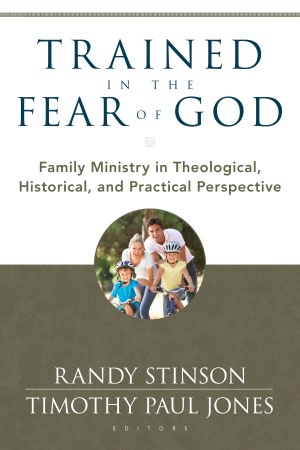
Later on in the week the new bride decides to question her mom about this practice of lopping off the ends of the roast. The mother’s reply is the same as the daughter’s, “that was always the way my mom made it”. The two curious ladies decide to ask grandma why she cut off the ends of the roast. She says, “I always cut off the ends of the roast because that is the only way that I could get it to fit in the pan”.
The point of the story is that generations upon generations can dutifully follow a tradition without even understanding it. What is worse when ripped from its original intention the new generation’s following of a practice is not only stupid it is also quite unhelpful and maybe even harmful. What happened with the grandmother and her roast is that she taught the daughter the practice but never explained why she did it. The daughter then was not able to contextualize the recipe for her own setting and so she slavishly followed a tradition and handed an unnecessary “must” down to her own daughter.
What is true of a three generations of ladies cooking a roast is just as true of many churches. There are various practices and strategies that have become a “must” to churches but the historical, theological, and even practical reasons for doing them have not been handed down. As a result of this oversight churches either neglect to key biblical practices (such as parents discipling their children) or they slavishly follow extrabiblical traditions without really knowing the reason why.
Summary
Trained in the Fear of God is a book compiled by Timothy Paul Jones and Randy Stinson that aims at providing these historical, theological, and practical reasons for engaging in family-equipping ministry. Family-equipping ministry is “the process of intentionally and persistently coordinating a congregation’s proclamation and practices so that parents are acknowledged, trained, and held accountable as primary disciple-makers in their children’s lives”. It’s not a program to be added to your church but a philosophy of doing family ministry that attaches itself to everything the church does.
This philosophy of ministry is catching on in many churches. It is the philosophy of youth, student, and family ministry at The Southern Baptist Theological Seminary and is quickly spreading to many other institutions. It is filling a void that is left in many other approaches to family ministry. As such many churches are adopting it. With such a spreading one of the dangers is that family-equipping ministry will just become the latest program and two generations from now it will become the next “lopping off the end of the roast” and its theological, historical, and practical foundations will be neglected.
Trained in the Fear of God is divided into three sections: Biblical and Theological Framework, Historical Foundations, and Practice. They are not titled that, but that is essentially the way the book is broken up. There are seventeen different chapters from different contributors (many of them are professors at SBTS). The reader is encouraged to check out the Table of Contents.
The book not only makes a compelling case for the necessity of family ministry it also paints a picture of what family ministry looks like in practice. There are helpful chapters that engage cultural misrepresentations (Al Mohler’s chapter on Homosexuality as an example). There are chapters that deal with family ministry in various contexts (Kevin Smiths’ chapter on Family Discipleship and the African American Experience). There is even a chapter on the child’s brain and how family ministry helps to shape the child’s brain. There is much to offer in these pages.
Should You Buy It?
If you are a church leader you should really consider buying this book. I am convinced that Family-Equipping Ministry (whatever it looks like in your particular context) is the way that churches need to minister to families. Every church that buys “how-to” books for moving towards family ministry needs to be certain to also purchase this book. It will build a foundation that will answer the question of “why” for generations to come.
If you are a mom or dad you should also buy this book. It will not only help you to see your valuable role in discipling your children but it will provide helps in doing so. In places where the book itself does not answer the “how-to” questions it will point you to other resources that will.
I highly recommend this book. Also as a little tip I would suggest looking up the Table of Contents and then doing a Google Search for the articles. You might be surprised what you find while you are waiting to purchase the book.
You can buy it here. It’s a little pricy but worth every penny. Churches need this book as a resource, so do schools, and so do parents.